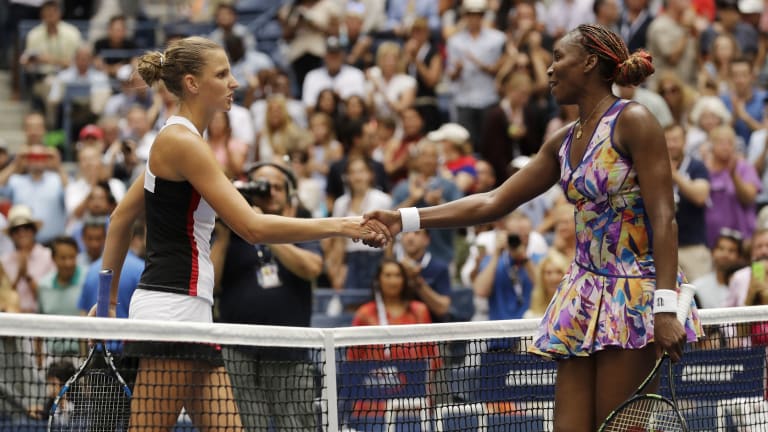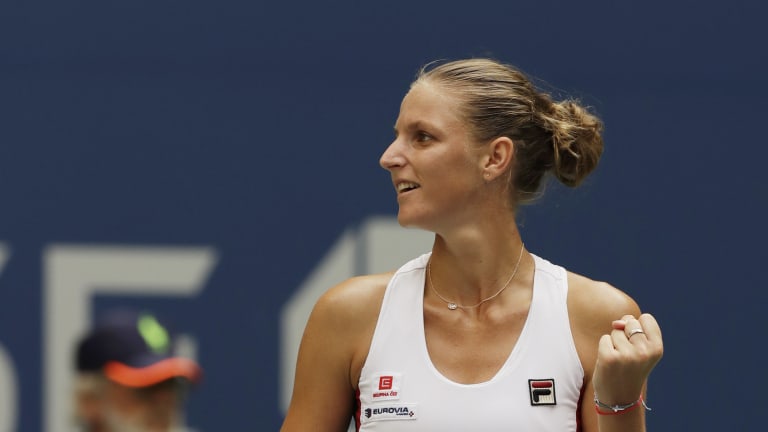The Top Matches of 2016, No. 8: Pliskova d. Venus Williams (U.S. Open)
By Dec 14, 2016Roland Garros
Can champion Iga Swiatek bring consistency, too?
By May 26, 2021Wimbledon
The Tennis Conversation: Tim Henman
By May 21, 2021Wimbledon
Debating best-of-three sets vs. best-of-five
By May 21, 2021Polish phenom Iga Swiatek rules in Rome
By May 16, 2021Flawless Final: Iga Swiatek double bagels Karolina Pliskova in Rome
May 16, 2021Pliskova powers past Martic to reach third consecutive Rome final
By May 15, 2021Iga Swiatek wins twice to reach Rome final, now a win away from Top 10
By May 15, 2021Elina Svitolina holds off Garbiñe Muguruza to complete Rome QF line-up
By May 13, 2021Gauff relishes flawless performance with Barty matchup looming
By May 13, 2021The Top Matches of 2016, No. 8: Pliskova d. Venus Williams (U.S. Open)
The Czech held off the legendary American—and 23,000 of her loud
Published Dec 14, 2016
Advertising

The Top Matches of 2016, No. 8: Pliskova d. Venus Williams (U.S. Open)
© AP
Advertising

The Top Matches of 2016, No. 8: Pliskova d. Venus Williams (U.S. Open)
© AP